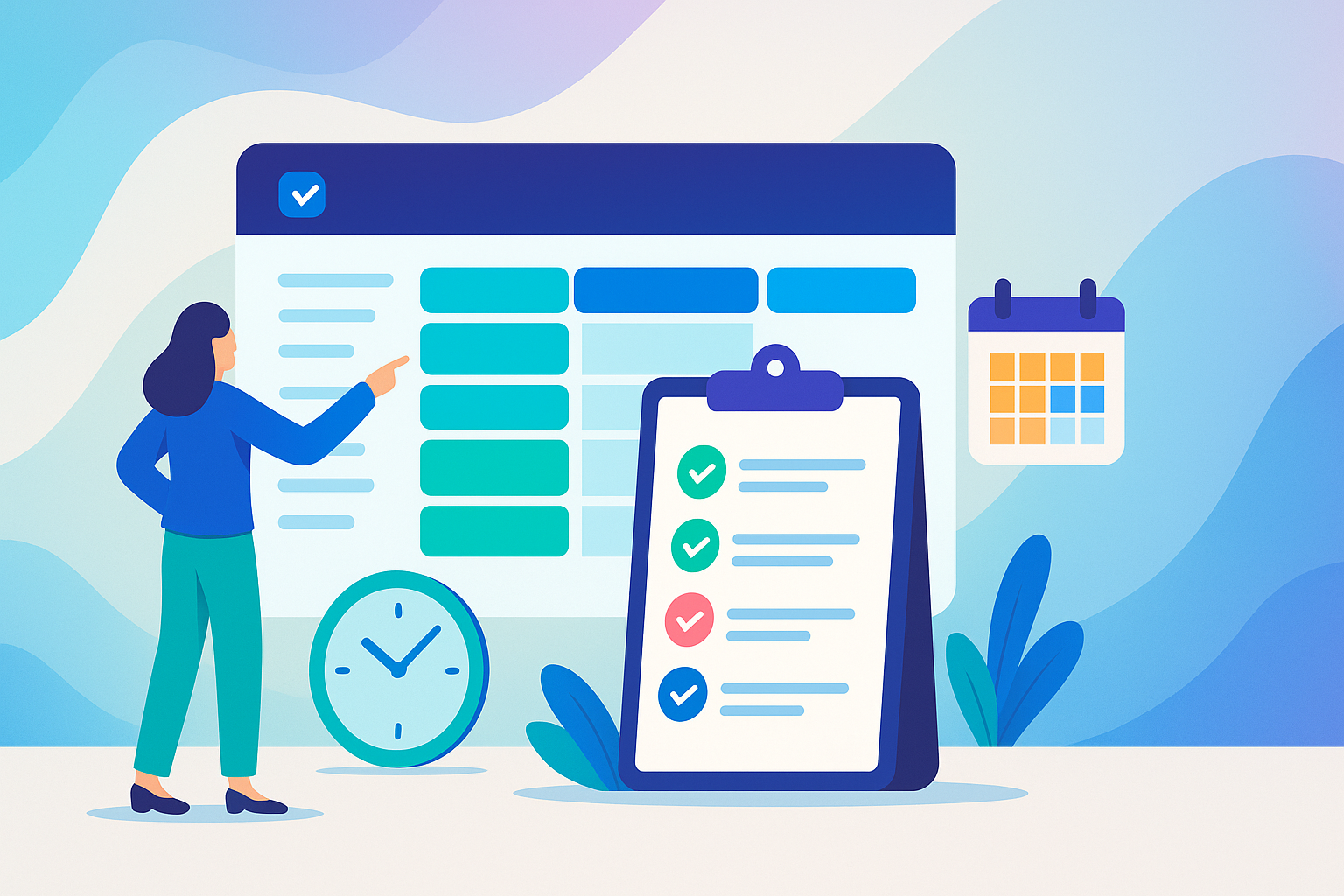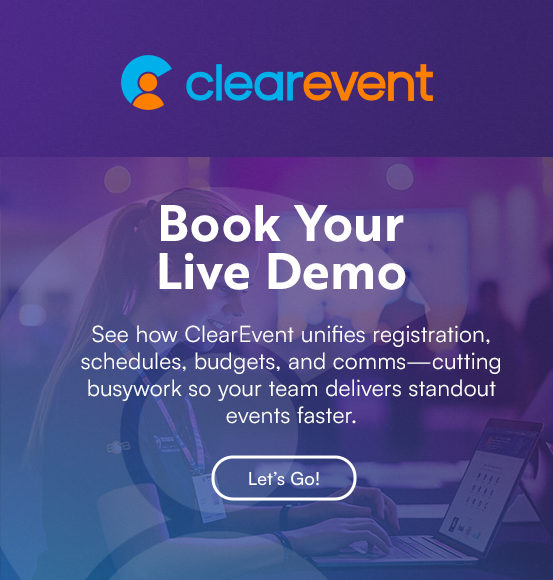Event Schedules: The Ultimate Guide to Building Effective Ones

Ever juggled a dozen moving parts while planning an event and worried something would slip through the cracks? That’s where a strong event schedule makes all the difference. Whether you’re running a conference, festival, or workshop, the right agenda keeps everything on track and your attendees engaged. This guide will show you how to create effective schedules, avoid common pitfalls, and use event planning tools to make the process easier.
Understanding Event Scheduling
What Is Event Scheduling?
Event scheduling is the process of planning and organizing all activities within your event, from sessions and speakers to breaks and networking. It also involves coordinating with venues, staff, and volunteers so every piece of the event aligns with your goals.
Why Event Scheduling Matters
A well-structured event schedule does more than keep time. It provides structure, maximizes engagement, and ensures resources like rooms, equipment, and staff are used efficiently. Most importantly, it gives attendees a clear roadmap so they know what to expect, when to arrive, and how to make the most of the event.
Benefits of Using Event Scheduling Software
Streamlining the Agenda
Relying on spreadsheets or manual methods can quickly become overwhelming. Modern event scheduling software simplifies the process with intuitive interfaces and automation. Organizers can add sessions, assign speakers, or adjust time slots in seconds, all without losing control of the bigger picture.
How Event Planning Tools Help
All-in-one event planning tools make it easier to:
- Customize agendas for different attendee groups
- Provide real-time updates when sessions change
- Integrate schedules with event registration and scheduling systems
- Gather analytics on session popularity to improve future events
Steps to Create an Effective Event Schedule
1. Know Your Audience
Tailor your event agenda to who will attend. Industry professionals may want in-depth sessions, while community-focused events might prioritize networking and entertainment. Use pre-event surveys or past data to guide your planning.
2. Define Clear Objectives
Set clear goals before scheduling. Are you aiming for education, networking, or product promotion? Objectives shape session topics, keynote timing, and the balance between presentations and activities. Clear objectives often tie directly to finances. Pairing your schedule with event budgeting tools ensures resources are allocated wisely.
3. Allocate Time Wisely
Prevent overlap by ensuring sessions targeting the same audience don’t run at the same time. Place high-demand speakers in prime time slots and use buffer periods between sessions to prevent delays.
4. Build in Breaks and Networking
Back-to-back sessions drain energy. Short breaks, meal times, and dedicated networking windows keep attendees refreshed and engaged.
5. Prioritize Accessibility and Inclusivity
Ensure schedules consider mobility needs, multiple languages, and diverse learning styles. A thoughtful, inclusive approach creates a better experience for everyone.
Customizing Schedules for Different Roles
Attendees: The Heart of the Event
- Provide a detailed agenda in advance
- Enable personalized schedules through your mobile event app
- Send reminders and updates about sessions of interest
Speakers and Panelists: The Content Drivers
- Share clear guidelines on session formats and expectations
- Schedule rehearsal time for smooth delivery
- Encourage pre and post-session interaction with attendees
Volunteers: The Support System
- Define roles and responsibilities clearly
- Use scheduling tools to assign shifts and avoid overlaps
- Offer training sessions so they feel prepared
Organizers: The Coordinators
- Plan regular pre-event meetings
- Assign on-site coverage zones
- Schedule post-event debriefs to capture feedback
Leveraging Technology
Features to Look For in Event Scheduling Software
- User-friendly design that saves time
- Customization for different audience needs
- Mobile event app access so attendees stay informed on the go
- Integration with registration systems for a seamless experience
- Analytics and reporting to measure engagement and success
The Power of Event Planning Tools
For busy organizers juggling many tasks, all-in-one event planning tools ensure scheduling, event registration, and communication stay connected in one place. This integrated approach saves time, reduces errors, and creates a smoother experience for organizers and attendees alike.
Best Practices for Building an Event Schedule
Start Early
- Secure high-profile speakers before their calendars fill up
- Share your event agenda early to boost registrations
- Leave time for testing and adjustments
Stay Flexible
- Build buffer times into your schedule
- Prepare backups in case of last-minute changes
- Use your event planning tool to communicate updates instantly
Gather Feedback
After the event, ask attendees, speakers, and staff for their input. Analyze which sessions drew the biggest crowds and which times caused bottlenecks. Use these insights to refine your next event’s schedule.
See How ClearEvent Simplifies Your Events
Building an event schedule can feel overwhelming but ClearEvent makes it simple. With ClearEvent’s event planning tools and mobile event app, you’ll save time, reduce stress, and deliver schedules your attendees will love.
Ready to simplify event registration and scheduling? Schedule a Demo today and see how ClearEvent helps you build smarter schedules and deliver unforgettable events.
Frequently Asked Questions (FAQ)
How do I create an effective event schedule? Start by defining clear objectives, understanding your audience, and mapping out key sessions. Use event planning tools to organize details, add buffer times, and make adjustments easily. A good schedule balances content, breaks, and networking opportunities.
What is the best software for event scheduling? The best event scheduling software is one that integrates with registration, communication, and analytics tools. Look for user-friendly design, mobile event app access, and customization options to fit your event’s unique needs.
Why is an event agenda important? An event agenda guides attendees through the experience, ensuring they know where to be and when. It also helps organizers allocate resources effectively and keep the event running on time.
How can I personalize schedules for attendees? Use event scheduling software that allows attendees to build their own personalized agendas. Mobile event apps make this easy, letting attendees select sessions, receive reminders, and get real-time updates.
When should I start planning my event schedule? Begin planning your event schedule as early as possible, ideally several months in advance. This gives you time to secure speakers, promote your agenda, and adjust based on feedback or changing circumstances.
